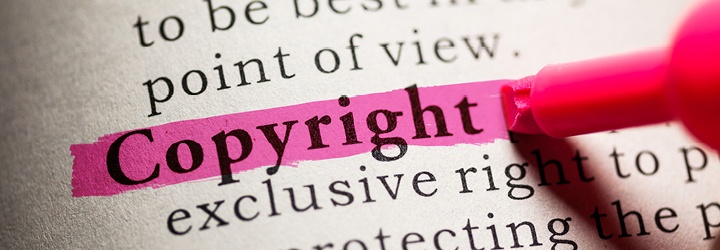1. Your Rights as an Author
The first step to protecting your work is understanding what your rights actually are. Many writers think they need to register their work to copyright it; this is only “kind of” true. A work is technically considered copyrighted when an author makes it public; that means, if you put it on any website that a general audience can get to, then your copyright has begun (and it lasts the life of the author plus 70 years). So why do so many authors and publishers register a work with the copyright office? In two words: legal protection. While your work is copyrighted, you cannot actually sue someone for copyright infringement until you register your work. Registering a work is actually pretty cheap (depending on what you are registering, fees start at $35), and does not require a lawyer.
What Every Author Needs to Know About Copyright
- As soon as you put your writing into a fixed form, whether on a pad of paper, a hard drive, a smart phone, or a recording device, you own the copyright to that work. Your first draft, riddled with typos, inconsistencies, and clichés, is protected by copyright law.
- Copyright ownership means you have the exclusive right to do, and authorize others to do, the following:
- Reproduce the work in books or other forms;
- Sell, distribute, and commercially exploit the work;
- Create derivative works, such as translations, adaptations, sequels, and abridgements
- Display or perform the work publicly, either live or in recorded form.
If anyone violates your rights, you may have a claim of infringement. Of course, there are exceptions. The most common is “fair use,” which we won’t get into here.
- Your copyright lasts your lifetime plus 70 years. If you create a work today and live another 40 years, the copyright will last 110 years!
- Literary and dramatic works, lyrics, musical notations, graphic and sculptural works, sound recordings, architectural works, characters (if fully developed and not a stereotype), and other works are protected by copyright law.
- Book and song titles, names, short phrases, real-world events, ideas, themes, plot lines, stock characters (such as the tough-talking gangster or handsome-but-dull hero), and generic settings (such as deep space or undersea worlds) are not covered by copyright.
- Legally, you are no longer required to mark your work, but it’s a good idea. If your work is property marked, then an unauthorized user may not claim that he or she was “innocent,” and you may be able to recover a larger award in an infringement action. The copyright notice has three parts:
- © or Copyright
- Year of first publication, which generally means the year the work was first distributed to the public. On unpublished material, the notice should read: “Unpublished Work © year author.”
- Name of copyright owner, which may be a pen name or the name of an entity such as a corporation. If there is more than one copyright owner, name all of them.
Add “All Rights Reserved” because the phrase is required in some foreign countries.
-
If you wish to transfer your copyright, you may "assign" the entire interest in the copyright, but most writers grant licenses instead.
Licenses can be exclusive (meaning only the licensee has permission to use the work) or non-exclusive (meaning more than one person may use the work at the same time). Licenses may be limited to a particular use (editorial, noncommercial, educational), format (print, ebook, web), duration, geography, almost anything.
You will grant licenses to others whether you are pursuing the self-publishing or traditional publishing route. For instance, when you sign up with IngramSpark, you are granting them a non-exclusive license to print and distribute your work for you. That’s the perfect structure – you obtain the services you need (printing and distribution) without giving up your rights.
- Registering your work with the U.S. Copyright Office for U.S. publishers is recommended. Registration establishes a public, searchable record of your work and is required before an infringement suit may be filed.
- If someone steals your work, you can send “take-down notices,” a topic widely covered on the internet. While it’s upsetting to see your work stolen, the theft may have little economic consequence to you. Your energy may be better spent creating new work and finding new readers.
3. The Difference Between Piracy and Scams
"Piracy" isn't always piracy; sometimes it's just a scam. There are literally hundreds of websites out there that either sell your work or give it away for free—except they don’t actually sell or give it away for free. These websites generally scrape Amazon and other retailers for inventory, then create a bogus website that appears to be hosting your work. When an attempt is made to download your book, purchasers are asked to add credit card information, sign up for some free trial, or buy a magazine subscription. The theft of information purchasers provide is a tried-and-true scam. It’s your right to contact the website and ask for your book not to be listed, but that may not be worth your time.
This chapter was compiled from the following posts on the IngramSpark blog:
"How to Protect a Book from Book Piracy" by Scott La Counte, CEO of BuzzTrace
"10 Things Every Writer Should Know About Copyright" by Helen Sedwick, University of Chicago Law School Graduate
